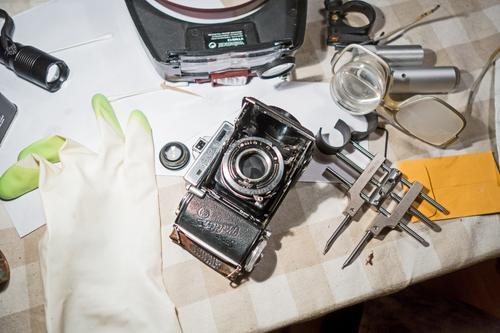I am not certain whether this qualifies as an experiment or if there is a more suitable classification.But it might interest those who have cameras with unusual formats.
Some time ago at a camera market I found a camera that my father once recommended to me as reasonably good, so i had to buy it. A Zeiss Tenax from 1939 with a 40mmf2 sonnar and 24x24mm format. This gives 50 exposures on a 36 exp film so only today I received the developed and printed results.
What can be interesting to others is both that the rangefinder and the lens combine to give sharp prints with good colours after more than 80 years (no time to put the negatives under the microscope to examine edge sharpness) and that the local print machine does recognize the format so that I did not get 1 1/2 negative frame in each print. Presumably other labs doing C41 also can adapt to non-standard formats.
p.



